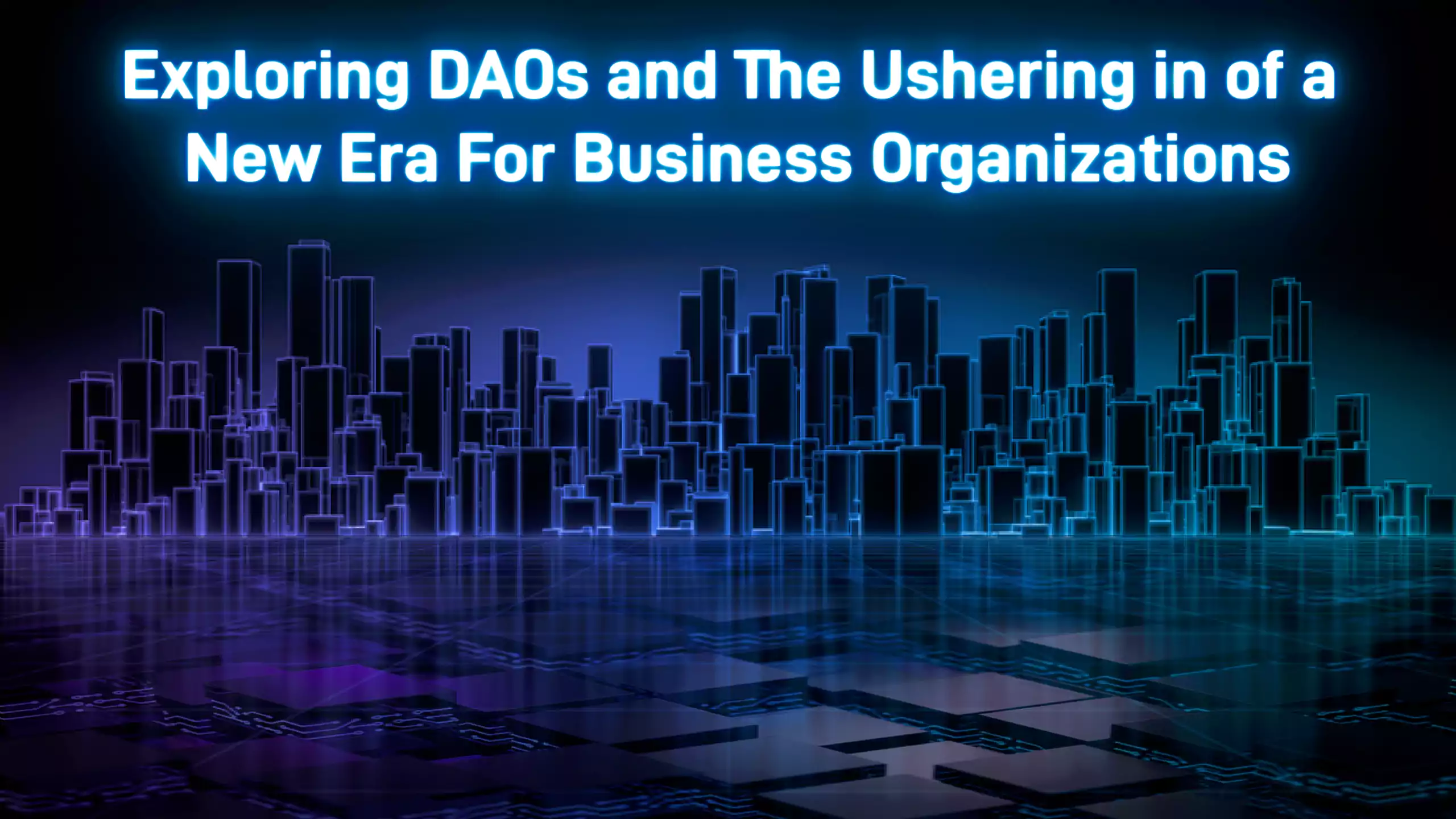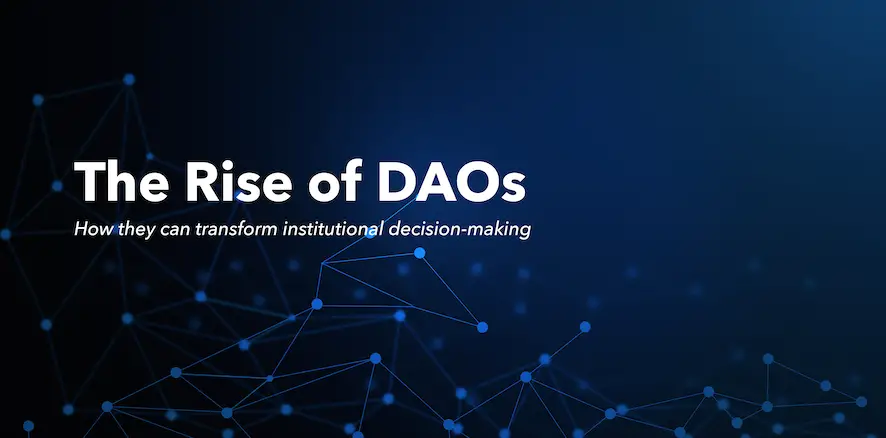The Rise of DAOs: A New Era of Organizational Structure

Executive Summary

Decentralized Autonomous Organizations (DAOs) are emerging as a transformative force in organizational structures. Leveraging blockchain technology and the power of collective decision-making, DAOs offer unique advantages over traditional hierarchical models. This article provides an in-depth analysis of DAOs, outlining their key tenets, functionalities, and the potential they hold for the future of organizations.

Introduction
The modern business landscape is characterized by increasing complexity, global interconnectedness, and rapid technological advancements. In this dynamic environment, traditional organizational structures often prove rigid and inefficient. DAOs, with their decentralized and autonomous nature, present a compelling alternative, offering enhanced flexibility, transparency, and collaboration.
Core Tenets of DAOs
Decentralization:
- DAOs distribute decision-making power across a broad network of participants, minimizing reliance on central authorities.
- Members have equal voting rights, ensuring a democratic governance process.
Autonomy:
- DAOs operate using self-executing smart contracts, which define and enforce rules and processes autonomously.
- This reduces the need for human intervention and ensures consistent and impartial decision-making.
Transparency:
- The entire history of a DAO’s decision-making and transactions is recorded on an immutable blockchain.
- This provides members with full visibility into organizational operations, fostering trust and accountability.
Collaboration:
- DAOs promote open and collaborative decision-making, where members can contribute ideas and vote on proposals.
- This fosters collective intelligence and helps organizations adapt quickly to changing circumstances.
Key Functionalities of DAOs
Collective Decision-Making:
- Members vote on proposals using governance tokens, which represent their stake in the organization.
- Proposals are approved through a decentralized consensus mechanism, ensuring democratic decision-making.
Smart Contract Automation:
- DAOs use smart contracts to automate operations, such as token distribution, treasury management, and member verification.
- This reduces bureaucracy and streamlines organizational processes.
Token-Based Membership:
- DAOs issue governance tokens to members, which represent their voting rights and ownership stake.
- This incentivizes participation and aligns member interests with the organization’s success.
Treasury Management:
- DAOs have their own treasury, which is managed by a collective of members or an elected group.
- Members have access to transparent financial data, ensuring accountability and trust.
Proposal and Voting Process:
- DAOs create proposals outlining changes or advancements to the organization.
- Members discuss and vote on proposals, with decisions made through a decentralized consensus mechanism.
Advantages of Implementing DAOs
Increased Transparency: Open access to blockchain records provides clear visibility into decision-making and operations.
Enhanced Efficiency: Smart contract automation reduces bureaucracy and streamlines processes.
Improved Collaboration: Distributed decision-making fosters collective intelligence and ensures that all voices are heard.
Reduced Costs: Decentralizing operations and automating tasks can significantly reduce expenses.
Increased Adaptability: DAOs are agile and can quickly adapt to changing market dynamics.
Conclusion
The rise of DAOs marks a transformative shift in organizational structures. By leveraging blockchain technology and embracing decentralization, DAOs offer a compelling alternative to traditional hierarchies. They promote Transparency, foster Collaboration, empower members, and enhance Efficiency. As organizations seek to thrive in the rapidly evolving business landscape, DAOs are positioned to play a central role in shaping the future of organizational management.
Relevant Keyword Tags
- Decentralized Autonomous Organizations (DAOs)
- Blockchain Technology
- Collective Decision-Making
- Transparency in Organizations
- Organizational Innovation
FAQs
-
What is a DAO?
- A DAO is a decentralized, autonomous organization that operates using blockchain technology and smart contracts.
-
What are the key benefits of DAOs?
- Increased transparency, enhanced efficiency, improved collaboration, reduced costs, and increased adaptability.
-
How are decisions made in DAOs?
- Members vote on proposals using governance tokens, and decisions are made through decentralized consensus mechanisms.
-
Who can join a DAO?
- Membership is usually open to anyone who holds governance tokens.
-
What is the future of DAOs?
- DAOs are expected to play a growing role in organizational management, as they offer a compelling alternative to traditional hierarchical structures.
